Terörün altındaki gerçeklerle ilgili sunuma buradan ulaşabilirsiniz.
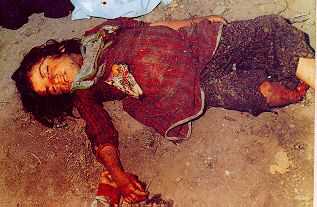
Download

Terörün altındaki gerçeklerle ilgili sunuma buradan ulaşabilirsiniz.

Download
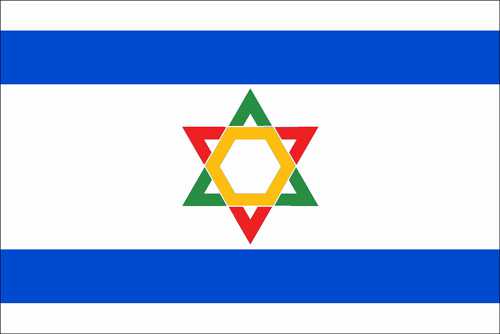

By KSENIA SVETLOVA
It’s early morning in Irbil, capital of Iraqi Kurdista (sic.). A few men gather around a small kiosk where dozens of newspapers and magazines in Arabic and Kurdish are carefully arranged on a piece of cloth on the ground.
The camera zooms in and concentrates on one of the men, who holds a glossy magazine with a large Magen David on the cover. This is not another illustration to an article about Israeli policies in Gaza and West Bank. The title is “Israel-Kurd” and the whole edition is dedicated to relations between the Kurdish nation and the State of Israel.
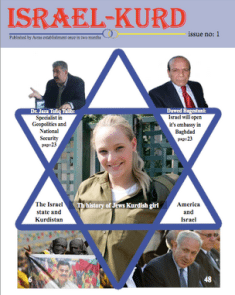 The anchor of American-funded Al- Hurra TV, who reads the introduction to the Israel-Kurd item, seems just as astonished as the customers at the newspaper stand in Irbil – it’s not every day that you see Israel’s name mentioned in a context other than the Arab-Israeli conflict.
The anchor of American-funded Al- Hurra TV, who reads the introduction to the Israel-Kurd item, seems just as astonished as the customers at the newspaper stand in Irbil – it’s not every day that you see Israel’s name mentioned in a context other than the Arab-Israeli conflict.
In Iraq, publishing a magazine with the word Israel on its cover is a risky business, considering the generally negative attitude toward Israel and those in the Arab world who seek rapprochement with the Jewish state.
“During last year we were often intimidated and threatened by different elements who didn’t like what we do, but this year it seems that people are more understanding and interested in our product,” says Hawar Bazian, managing editor of the magazine. Bazian was born in Iran and fled the country with his family, finding refuge in Irbil. Although he has lived there for many years and completed his BA in English literature at Irbil University, he doesn’t have Iraqi citizenship and is not able to further pursue his education.
Bazian believes there are many similarities between Kurds and Israelis and says that his publication, which was established two years ago, is meant to build a cultural bridge between the two nations.
Obviously, not everybody in Irbil and beyond agrees with him and Mawlood Afand, the editor-in-chief and founder of the magazine. In addition to threats and intimidation, the Web site of the magazine has twice been hacked by Turkish users and the authorities have not given it a work permit.
“There are two approaches to Israel in Iraqi Kurdistan,” Bazian says. “There are those who are very interested in relations with Israel and eager to learn more about it, and those who hold quite a negative view of this country, being influenced by radical Islamic ideology.
They think that Israel is the enemy,” Bazian told The Jerusalem Post.
SINCE THE Israel-Kurd association hasn’t received a permit from the Iraqi authorities, there are no offices, computers or faxes – the association exists on-line and publishes a monthly magazine in Kurdish. The Web site is also available in Arabic, English and Turkish.
Some articles are also available in Hebrew. The banner, “Let’s know Israel as itself,” promises an insight into Israeli society and history.
The Web site mainly offers news from the Kurdish world and Israel and op-eds and analysis on different developments in the Middle East by Kurdish, Israeli and American contributors.
“We are the result of the historical suffering done by the Persian, Arab and Turkish nations against the Kurds, who lost their national, religious and cultural rights. These enemies try to destroy our future as well as our past. The Israel-Kurd Institute tries to mention a historical relationship between Kurds and Jews and review this relation without any religious or ideological concerns.
So we have a clear message which talks about an honorable and great historic stage of the Kurdish nation that belongs to Kurdish-Jewish relations. We will use this for the Kurds’ sake and for the sake of their national question,” the “About Us” sections of the on-line magazine states.
“Not only do Israel and the Kurds have mutual interests and historical ties between their peoples, but also many common enemies,” says Bazian and starts to count: Iran, Syria, Turkey, the Arabs – almost everyone in the Middle East. That is exactly why, he believes, the Kurds and the Jews, two ancient nations who endured enormous suffering and were stripped time and again of their natural rights, should join forces and cooperate.
Some Kurdish contributors go even further and suggest that Jews should come to Kurdistan and help build the national Kurdish home. “Kurdistan will be the second home for Jews after Israel,” believes Hamma Mirwaisi, author of Return of the Medes. “Kurds always have treated Jews as equal partners in Kurdistan since the Median Empire. It may be because Abraham, the forefather of the Jewish nation, was an Indo-European Kurd (!) instead of an African Semite like the Jewish scholars have been claiming after Moses came back from Egypt. Or a large segment of the Kurdish populations are the descendants of the lost 10 Jewish tribes after they were exiled by the Assyrian Empire to Kurdistan. Whatever the reasons, the Kurds are treating Jews equally, even if Islamic clerics are encouraging them otherwise.
“Kurdistan can absorb millions of Jews, because it is a large territory and in need of the Jews’ knowledge. Jews and Kurds can be a blessing for one another and live in peace and prosperity for generations to come.”
Other articles and op-eds printed in the magazine discuss the recent deterioration in relations between Israel and Turkey. “Turkish Prime Minister Recep Tayyip Erdogan describes Israeli soldiers as ‘murderers’ or the Israelis as ‘barbarians,’” notes one writer. “I believe it’s the other way around; the Turkish soldiers are the true murderers, not the Israeli soldiers. Israelis are defending their ancient Holy Land of Israel, but Turkey occupied the Kurdish holy land of the Medes. They are occupiers and murderers.”
“Turkey should be held liable for all the damage that was caused to Israel during the Hamas-supported events, also for damage caused to the Kurds.
Turkey, with all the support that they get from the Israeli Government and Unites States, still cannot face the Kurdish Freedom Fighters. I wish that the Israeli Government from now on will be able to support the PKK Freedom Fighters (read terrorists) against the Turkish Government in order to support human rights and stop the violence against innocent Kurdish people.”
BAZIAN SHARES THIS point of view and believes the way Israel dealt with the Turkish flotilla was appropriate and understandable. “We were watching carefully the developments around the Turkish flotilla, and we were amazed by the international reactions.
After all, Israel has every right to defend its borders. We would understand if some other state, such as Iran, which is known for its provocations, would do something like this, but Israel is a very normal country. So I think that it was legitimate what happened there.”
Bazian says he would love to visit Israel some day, but now it still seems a far off dream as there are no diplomatic relations between Iraq and Israel. But Kurds are used to being patient, he says, and good things come to those who wait, as the proverb has it. “Any diplomatic relations have their stages. In the beginning there is communication and establishing of cultural bridges, which is exactly what we are doing.
It might take time until things change, but Israel has to know it has a good friend in the Middle East, perhaps its only friend,” he concludes.
https://www.jpost.com/Features/In-Thespotlight/Israel-our-ally, 31/08/2010
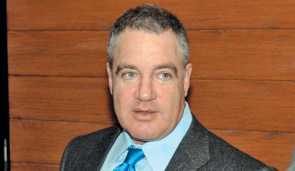

By TheMarker and Agencies
Idan Ofer, the chairman of the Israel Corporation, visited Sulaimaniyah in Iraqi Kurdistan (sic.) a month ago – reports the French Jewish website JSS and Intelligence Online.
JSS revealed that Ofer, accompanied by six businessmen, flew from an unidentified European city on May 27 to meet with senior Kurdistani (sic.) officials, including Vice President Kosrat Rasul Ali and Prime Minister Barham Salih. The visit was to show support for the Kurdish people and help develop economic ties between Kurdistan (sic.) and Israel.
Ofer is interested in investing in developing oil installations in Kirkuk, reported JSS, as well as building refineries in conjunction with European and Asian partners. Kurdish officials view worsening Turkish-Israeli ties as an opportunity to strengthen their relations with Israel.
Ofer’s spokesman said he does not comment on Ofer’s schedule or private affairs.
https://www.haaretz.com/2010-06-25/ty-article/report-idan-ofer-visited-kurdistan/0000017f-e875-df2c-a1ff-fe755df80000, 25.06.10

Turkish president says flotilla raid ‘crime’ closer to act of terror group than of sovereign state, adds Israel must offer compensation if it wants forgiveness
Israel must make amends to be forgiven for a commando raid on a Gaza-bound aid flotilla, including apologizing and paying compensation, Turkish President Abdullah Gul told the French daily Le Monde.
Gul added that if Israel made no move to heal the rift, then Turkey could even decide to break diplomatic relations.
In an interview published on Friday, Gul said the Israeli raid at the end of May, which killed nine activists, was a “crime” which might have been carried out by the likes of al-Qaeda rather than a sovereign state.
“It seems impossible to me to forgive or forget, unless there are some initiatives which could change the situation,” Gul was quoted as saying by Le Monde.
Asked what these might be, he said: “Firstly, to ask pardon and to establish some sort of compensation.” He added that he also wanted to see an independent inquiry into the botched raid and a discussion on lifting Israel’s blockade of Gaza.
Asked if Turkey might break relations with Israel if they did nothing, Gul said: “Anything is possible.”
Once a close ally of Israel, Turkey recalled its ambassador following the flotilla incident, cancelled joint military exercises and said trade and defense deals worth billions of dollars would be reduced to a minimum.
Separately, Philip Alston, the UN special rapporteur on extra-judicial executions, said any inquiry set up by Israel to investigate the Gaza flotilla incident “must be given a genuine capacity to find the facts” or it would not be credible.
To comply with international standards, he said, such an inquiry would have to be independent of the government and have full legal authority to obtain direct access to all relevant evidence, including the military personnel involved.
Israel has fended off a UN demand for an international investigation, instead accepting a US proposal for an Israeli inquiry with the participation of outside observers.
Ynetnews
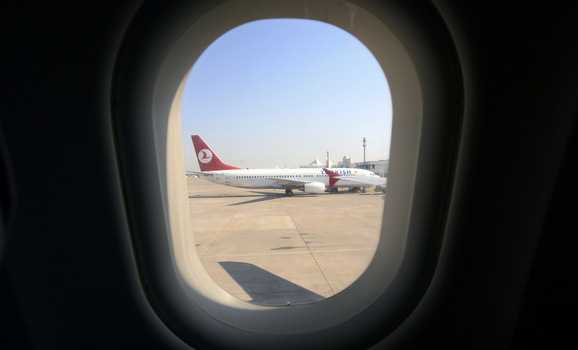
Kurdistan diary
Mountains and Waterfalls
Jul 7th 2008
From Economist.com
Standing in a crowded amusement park near Rawanduz, in northern Iraq, waiting to get on a small, mountainside toboggan-run while sucking an ice-lolly that claimed to imitate a watermelon (but more closely resembled chilled, sweetened, pulverised cotton wool), I cannot help but feel that my expectations of Kurdistan have been confounded.
Iraqi Kurdistan is not an obvious holiday destination. But when offered the opportunity to spend a week here, I jumped at it. While the rest of Iraq remains mired in conflict, the north is relatively peaceful. After the years of suffering under Saddam Hussein, the Kurds have finally been able to take their fate in their own hands. They are busily building a future.
The Kurdish Regional Government has launched a public-relations campaign, touting northern Iraq as “The Other Iraq”—a tourist-friendly destination. But few beyond thrill-seekers and war-zone tourists seem to have got the message. The only visitors I come across are either Kurds from the north or Arabs seeking relief from the relentless awfulness of the rest of the country. But the bustling tea-stalls are a hint of how much Kurdistan has changed from the years under Saddam.
I meet only two other Westerners during my time in Kurdistan, grizzled men from Johannesburg and Arizona. (They looked rather more like employees of Blackwater than travellers from Thomas Cook.) Our conversation consisted largely of their dire warnings about the dangers of Kurdistan. But I am determined to prove them wrong. I am here to discover the delights of this Mesopotamian idyll, whatever and wherever they may be.
Back at the amusement park, I climb into the rickety car of the toboggan-run, fasten the slightly frayed seatbelt and cram my bag between my legs before we launch down the side of the mountain. On either side of the track are sheets of chicken wire, about eight feet high. I can only assume this is there to catch us if we career off the track, to prevent us from plummeting down the side of the mountain. This does not inspire me with confidence. Neither does a sign warning of “danger of death”. Still, onward, ever onward.
Halfway down the ride, we stop our little car to take photos. The mountains are beautiful beneath the cornflower-blue sky; olive and brown, with golden grasses all the way down, flecked with lilac flowers. The Kurds’ proverbial only friends are a sight to behold.
Having survived this terror run, we drive on to the Bekhal waterfalls, one of the area’s great natural landmarks. As our minivan trundles up the steep hills, we are soon forced to switch off the air-conditioning to ensure that the engine doesn’t conk out halfway up. Sweatily munching a bag of fresh white mulberries, their skin blushed with pink, we watch a group of cyclists flash past.
It is worth the hot ride. The waterfalls are beautiful and hundreds of people are there to visit them. The waterfalls are not cordoned off. You are restrained only by your own daring in clambering up the slippery rocks. At every level, there are people picnicking, sipping tea, grilling meat, playing music.
Near expiration in the 40-degree heat, we plunge into the water, fully clothed. It is teeth-chatteringly cold but the relief is immense. In the intense heat, we are dry within minutes.
As we climb higher, we come across a group of men playing drums and pipes. They motion to us to join them. Within minutes we are dancing in a line, lurching back and forth. It is striking just how similar this Kurdish dancing is to the Jewish dancing of my childhood. The same concentric circles, the same swaying, the same steps. But given the eagerness of most Kurds to stress their unique identity, I suspect few would be flattered by the comparison.